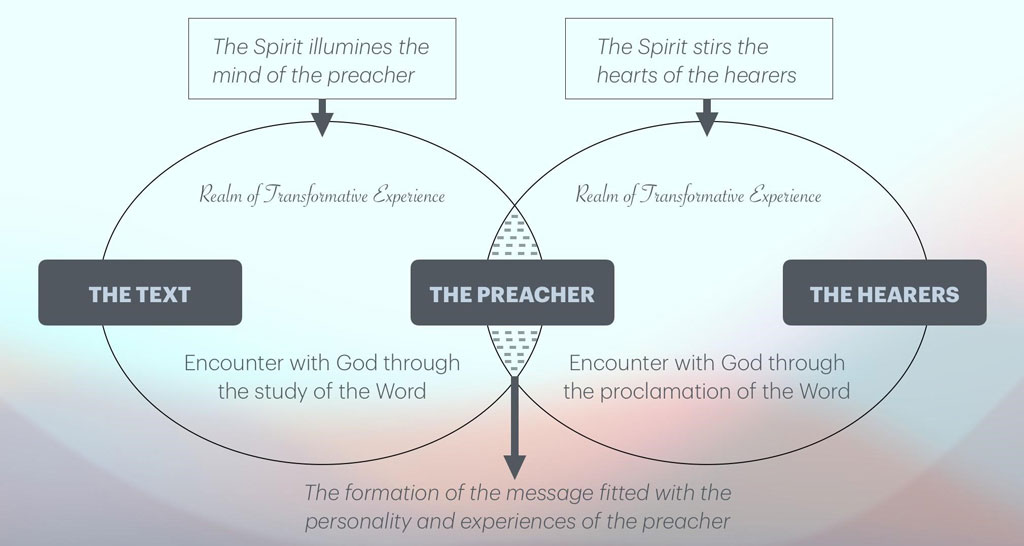Preaching the Word in the Age of AI

A friend introduced me to ChatGPT. He said, “Ask anything, and the chatbot shall respond to your query with an elaborate explanation.” So, I did! My first question was, “How did man come to be?” I was curious. Would the chatbot give me a common scientific view? Would it respond to me from a Biblical perspective? The chatbot’s answer was to provide a paragraph of introduction, giving multiple perspectives: 1) The Scientific Perspective: Evolutionary Theory; 2) the Religious Perspective; 3) Philosophical Perspectives; and 4) Interdisciplinary Perspectives. Each of these items came with a corresponding explanation.
I was fascinated by the chatbot’s response, not just for the information it gave, but how it was put together. It dawned on me that it must be capable of crafting a sermon. So I asked, “Can you compose a complete sermon from Genesis 3:15?” The response was mind-blowing. It gave me a sermon in an extended outline format with a title, introduction, functional question, main points, conclusion, application and prayer. The piece was ready to be delivered in a matter of seconds, potentially saving the preacher much time. But the question remains, “Should modern-day preachers fully leverage the service of AI in sermon formulation?”
If the concern of preaching is purely to disseminate information, then the answer is “Yes.” But if it goes beyond giving information toward facilitating transformation, then the answer is “No.”
Preaching: A Transformative Rather Than Informative Ministry
What is preaching? And what is preaching’s ultimate goal? The ministry of preaching involves three visible elements: the text/Word, the preacher, and the hearers. These elements function under the encompassing work of the Holy Spirit. The Holy Spirit works in the heart and the mind of the preacher as the preacher engages Scripture, through hermeneutical study and prayer, and society, establishing a bridge between Biblical truth and the surrounding culture. When the preacher proclaims God’s message, the Holy Spirit also works in the hearts and minds of the hearers, convicting them of their sins, encouraging them in their trials, and empowering them for godly living. When the Spirit works, there is an encounter with the divine. Thus, in the ministry of preaching, the preacher is not only informed as he studies and prepares, but is brought into the transformative process as he encounters God’s message. In the same sense, the hearers are not only informed, but also brought into the transformative work of God as they listen to the proclamation and apply it in their lives. (See the image below)

Haddon Robinson, in his definition of expository preaching said,
Expository preaching is the communication of a biblical concept, derived from and transmitted through a historical, grammatical, and literary study of a passage in its context, which the Holy Spirit first applies to the personality and experience of the preacher, then through the preacher, applies to the hearers.1
The message of the text, through the intervention of the Holy Spirit, is applied in the lives of both the preacher and the hearers. It is a ministry, not for the sake of information only, but for life transformation.
A persistent reliance on AI would lead to the preacher’s spiritual malnourishment. The preacher would miss out on the following transformative experiences through which the Holy Spirit works:
- The exercise of discipline that is vital in the development of the minister’s spirituality and ministry.
- The honing of the interpretive skill and the reflective ability, which will gradually deteriorate if not regularly practiced.
- The encounter with God and the illumination of the Holy Spirit in the meditation of the Word, which is necessary for the powerful witness of the gospel (1 Cor. 2:4-5).
- The integration of the preacher’s life with the proclamation of the Word, which is vital for creating culturally relevant messages for a particular group of hearers.
The proclaimers of Biblical truth testify to the truth’s power and efficacy. Paul demonstrated this reality in his letter to the believers in Galatia, sharing that “God … set me apart from my mother’s womb and called me by his grace … to reveal his Son in me so that I might preach him among the Gentiles” (Gal. 1:15-16a). This indicates that Paul’s encounter with Christ was a core element in his ministry of preaching. The message is experienced first by the proclaimer and then relayed to the hearers, so that each is transformed. Collectively, they form a community that radiates the truth and power of God.
Preaching: A Communal Rather Than An Individual Ministry
The ministry of preaching seeks to create a community of believers who are subjected to the transformative work of God and live as a community that embraces the Biblical worldview. David Ward soundly captures the concept saying, “The end goal of preaching is the ongoing formation of the Christian community, including the preacher, into increasing congruence with the gospel as a ‘being-saved community’ in and for the world.”2 Preaching aims to form a community shaped by God’s truth under the guidance of the Holy Spirit, which will then influence the wider society. “The aim of preaching is living well as a worshipping community for the sake of the world.”3
The ministry of preaching is naturally communal. The preacher, as an instrument of God in bridging the gap between the past and the present, should be constantly aware of the transformative process that needs to happen within a community. This is a strength in Asian communities, where individualism is not the norm. Asians commonly practice collectivism. For Filipinos, this is concretely embodied in our practice of bayanihan, a beautiful custom where each person readily lends a helping hand to another. When this ethos is exercised in the ministry of preaching, the Biblical text resonates powerfully.
Richard Rojas and I founded a group we call the Alliance of Preachers. It is composed of regular preachers from all over the Philippines who select their monthly series and weekly sermon texts together. As a community of preachers, we regularly meet online to study our chosen text for the week. A discussion facilitator and a secretary are assigned for each session. At the end of each meeting, the secretary sends the discussion notes out to the members. Within the week, each may share cultural patterns and norms that are directly addressed by the preaching focus we’ve agreed upon. We try to ensure a high level of accountability within our community, so that the members are not only empowered but also transformed by the exercise. This is based on our belief that when the Holy Spirit transforms a preacher’s life through the Word, it becomes a credible testimony that affects the lives of those listening to the preacher’s sermon.
Conclusion
As the preaching of the Word transforms lives within our communities, the community becomes a doxology of God’s greatness, a powerful testimony to our world. The ministry of preaching is not for the sake of simply informing. It should seek to transform lives. Thus, the use of AI cannot replace the hard work of practicing Biblical and cultural exegesis, as well as the transformative experience of prayer and meditation in the ministry of preaching.

